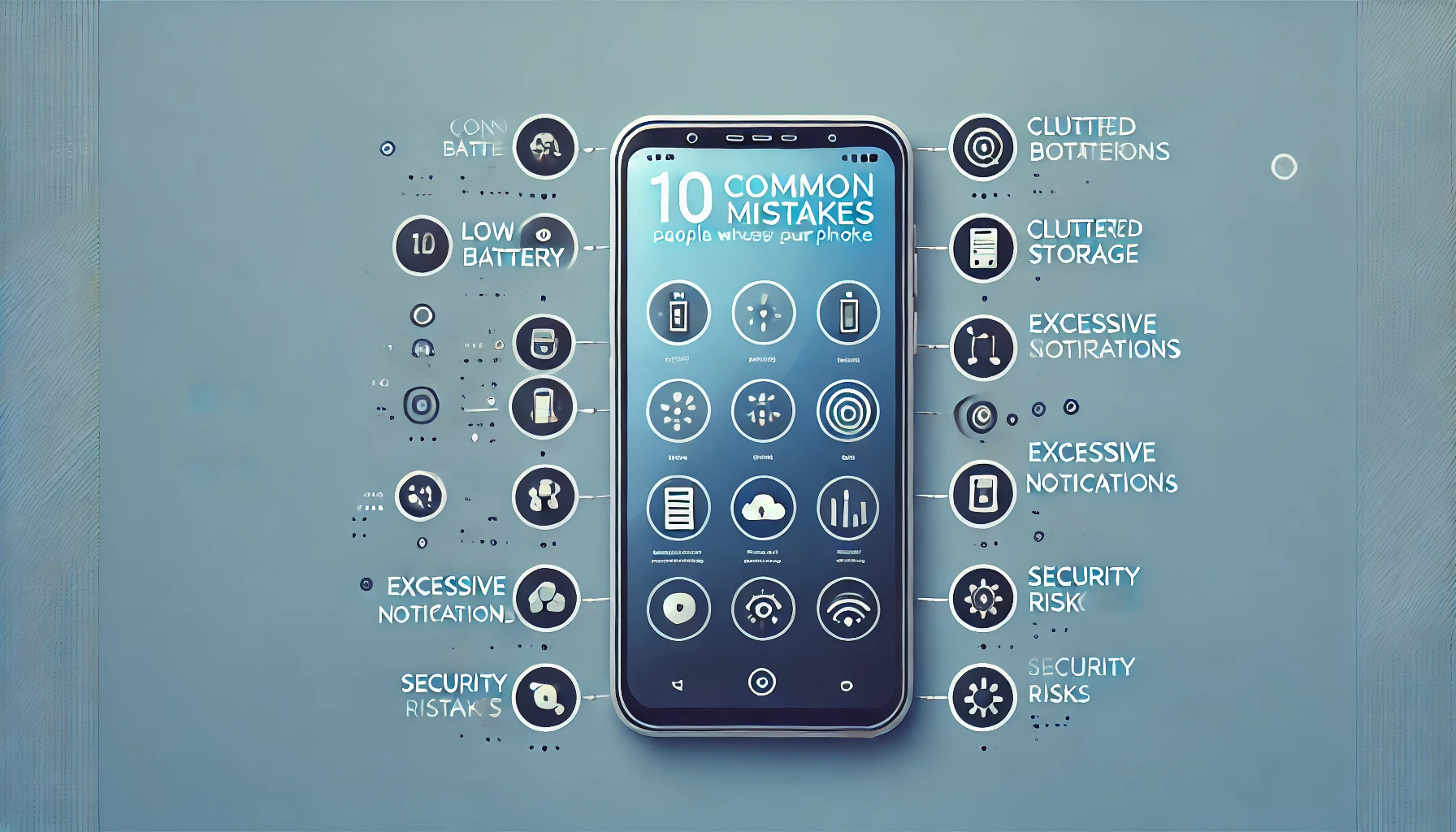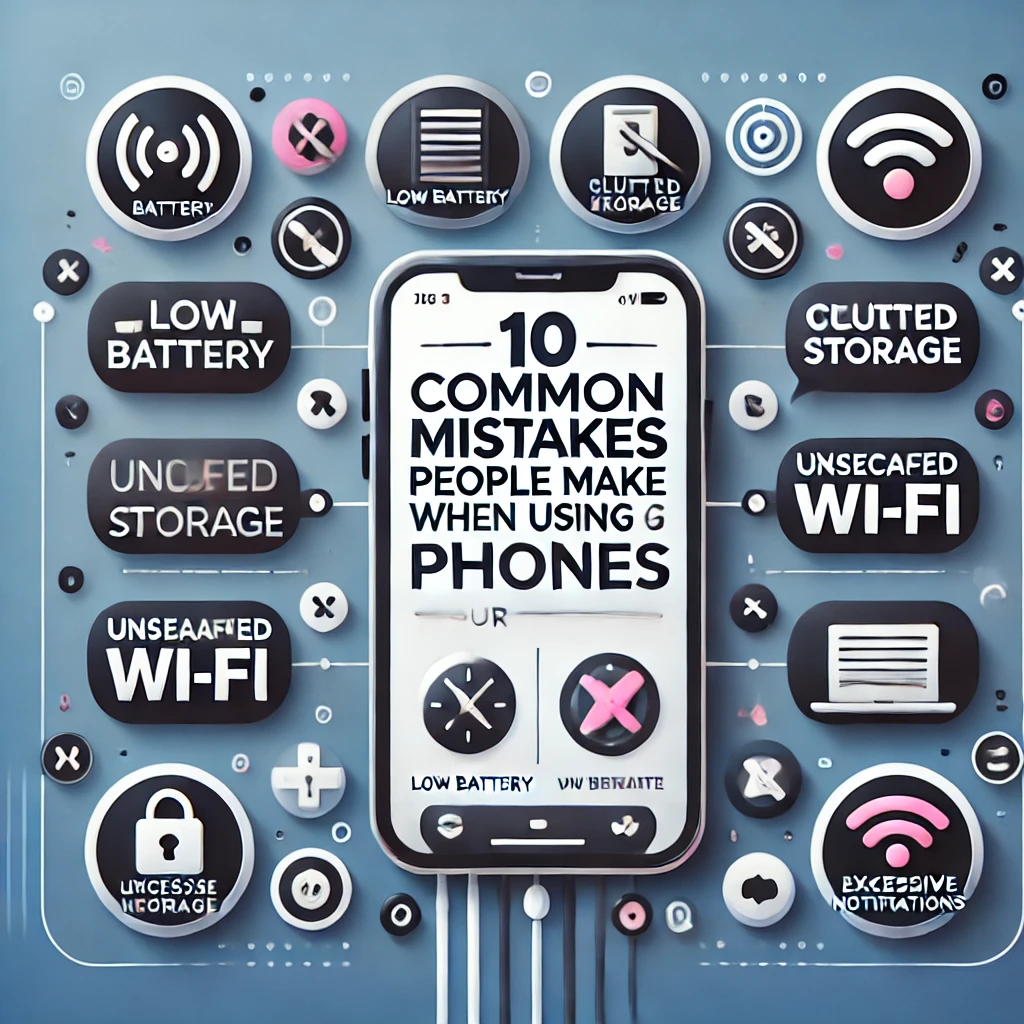Telephone is a telecommunications device that enables two or more users to conduct a conversation when they are too far apart to be easily heard directly.
A telephone converts sound, typically and most efficiently the human voice, into electronic signals that are transmitted via cables and other communication channels to another telephone which reproduces the sound to the receiving user.
THEUPDATE brings you the 10 common mistakes people make when using their phones, along with detailed explanations for each:
- Not Updating Apps or System Software
Failing to update your phone’s operating system or apps exposes you to security vulnerabilities and performance issues. Updates often include bug fixes, new features, and enhanced security measures.
- Using Unsecured Public Wi-Fi
Connecting to free or public Wi-Fi without proper protection (e.g., VPN) can lead to data theft or hacking. Always avoid entering sensitive information (like passwords) on public networks.
- Leaving GPS or Bluetooth Always On
Keeping location services or Bluetooth on when not in use drains the battery and may expose your device to unauthorized access or tracking. Turn them off when unnecessary.
- Not Cleaning or Managing Phone Storage
Many users allow their phones to become cluttered with unnecessary files, photos, and apps, which slows performance and uses up storage.
Regularly clean up your phone and back up important data to cloud services.
- Using Phones in Bed or Before Sleep
The blue light emitted by phone screens disrupts sleep patterns and can strain your eyes. It’s best to avoid phone usage at least an hour before bedtime or use night mode.
- Using Low-Quality Chargers
Using non-certified chargers can damage your phone’s battery or even cause overheating. Always use chargers recommended by your phone’s manufacturer to ensure safety and efficiency.
- Downloading Apps or Visiting Untrusted Websites
Accessing unsafe websites or downloading apps from unofficial sources increases the risk of malware or data breaches. Stick to reputable platforms like Google Play Store or Apple App Store for apps.
- Ignoring Battery Health
Letting your phone battery drop below 20% or keeping it at 100% for long periods reduces its lifespan. Aim to keep the charge between 20% and 80% to preserve battery health.
- Using High Screen Brightness for Long Periods
Keeping your screen brightness at maximum for extended periods strains your eyes and quickly drains the battery. Use adaptive brightness or manually lower it to a comfortable level.
- Allowing Excessive App Permissions
Some apps request access to features like the camera, microphone, or location without a valid reason.
Granting unnecessary permissions puts your privacy at risk. Always review permissions before accepting them.
Tips for Better Phone Usage:
- Regularly update your device and apps
- Be mindful of your phone’s security and privacy
- Use your phone responsibly to avoid addiction and health issues
- Maintain good battery and storage practices
- Use trusted Wi-Fi networks
- Optimize battery health
- Manage storage regularly
- Adjust screen brightness
- Be mindful of permissions
- Turn off unused features
- Avoid using the phone before bed
- Use certified accessories
- Practice digital well-being.
Photos


